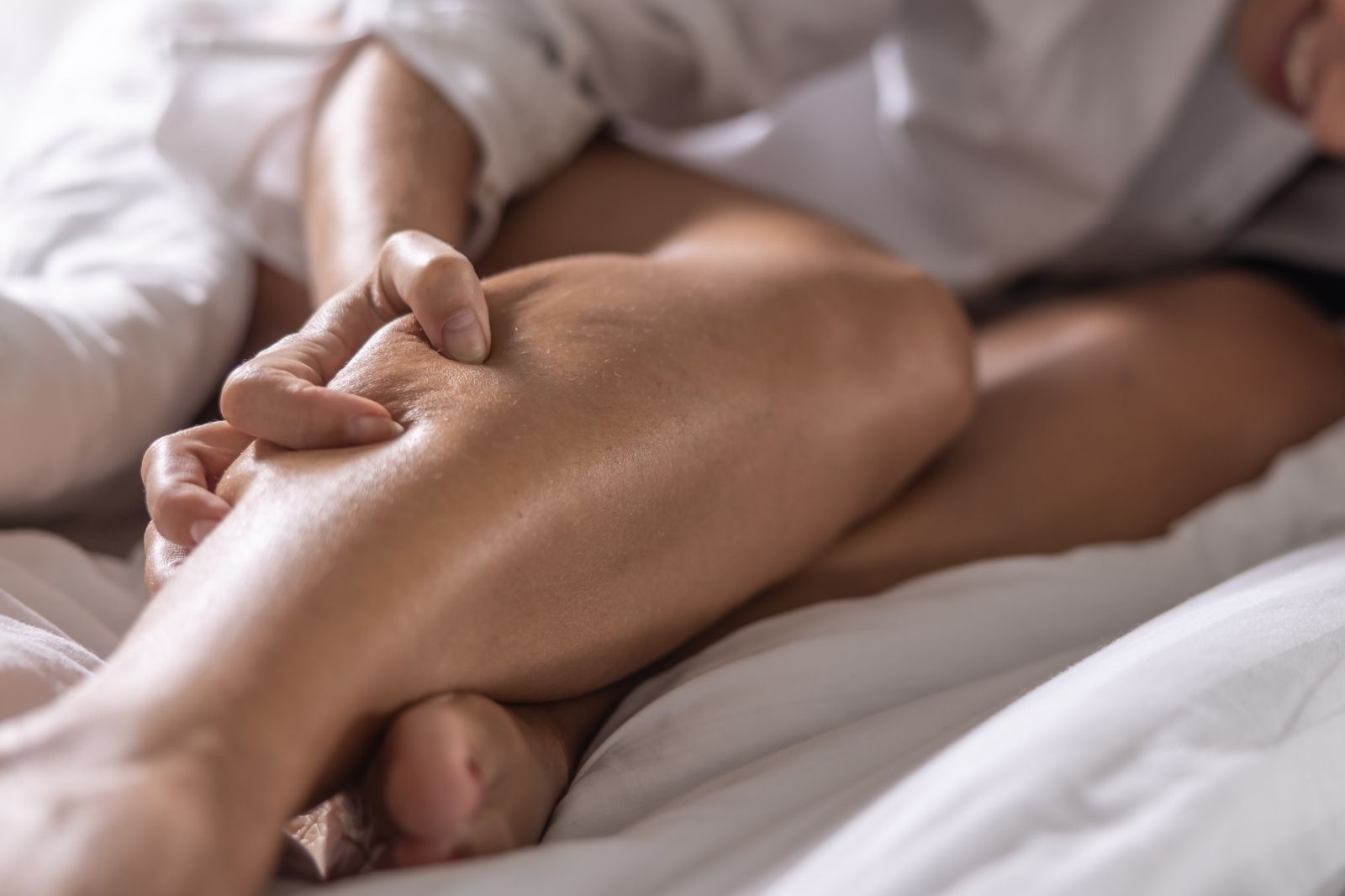Why Do I Get A Charley Horse During Sleep?

Have you ever woken up in the middle of the night with a sharp, stabbing pain in your leg that makes you wince and scramble for relief? If so, you’ve probably experienced a charley horse. These painful muscle cramps are common and can leave you wondering what caused them and how to prevent them from happening again. Understanding the reasons behind nighttime leg cramps can help you better manage them. Here’s a closer look at why you might be getting a charley horse during sleep and what you can do about it.
What Is a Charley Horse?
A charley horse refers to an involuntary muscle cramp or spasm, most commonly affecting the calf muscles but also in the thighs or feet. The cramp is usually sudden and painful, and it causes the muscle to contract and feel hard to “unlock”. These cramps can last anywhere from a few seconds to several minutes, and while they typically subside on their own, they can be quite uncomfortable.
The Causes of Charley Horses During Sleep
Dehydration
One of the most common causes of muscle cramps is dehydration. When your body is not properly hydrated, it affects your muscle function and can lead to involuntary contractions. During sleep, your body naturally loses moisture. To stay hydrated, make sure to drink enough water during the day, especially if you’ve been active or are in a hot environment. Just make sure not to drink too much water before bed or else you’ll need to use the bathroom.
Electrolyte Imbalance
Electrolytes like potassium, magnesium, calcium, and sodium are essential for muscle function. An imbalance in these minerals can trigger muscle cramps. For example, low levels of potassium or magnesium can cause the muscles to become more prone to spasms.Consider consuming more foods like bananas, avocados, leafy greens, dairy products, and nuts.
Prolonged Physical Activity
Whether you’ve been running, hiking, or doing heavy lifting, intense physical activity can lead to muscle fatigue and cramping. This is particularly true if you haven’t adequately stretched or hydrated before or after exercise.
Inactivity and Poor Circulation
Sitting or standing in one position for long periods can reduce blood flow to the muscles. Poor circulation can cause your muscles to become stiff and more likely to cramp during sleep. This is why people who work at desks or have long commutes are more at risk of experiencing charley horses. Stretching throughout the day and moving around regularly can help maintain healthy blood circulation and reduce the risk of cramps at night.
Sleep Position and Muscle Stiffness
Your sleeping position can also play a role in nighttime muscle cramps. Sleeping with your feet pointed downward or with your toes tucked under for extended periods can shorten the calf muscles and make them more likely to cramp. Additionally, if you sleep in an unusual position or your body is not properly supported, certain muscles can become strained and lead to cramps. Sleeping with a supportive pillow or changing your position can help prevent cramping.
Medical Conditions and Medications
Sometimes, underlying medical conditions, medications, and age can contribute to leg cramps during sleep. Conditions like diabetes, kidney disease, and nerve disorders can increase the frequency of muscle cramps. Certain medications, such as diuretics can make muscle cramps more likely. If you suspect a medical condition or medication may be contributing to your charley horses, consult with your doctor for proper treatment.
Tips for Preventing Charley Horses During Sleep
- Stay Hydrated: Drink enough water throughout the day, especially if you’ve been physically active or are exposed to hot weather.
- Maintain a Balanced Diet: Include foods rich in potassium, calcium, and magnesium in your diet, such as bananas, sweet potatoes, leafy greens, yogurt, and nuts.
- Stretch Before Bed: Gentle stretching of the calf muscles and other leg muscles before bedtime can help reduce the risk of cramps.
- Adjust Your Sleeping Position: Sleep with your legs and feet in a neutral position to avoid putting strain on your muscles.
- Wear Supportive Shoes: Proper footwear with adequate arch support can help prevent muscle fatigue and cramping.
- Consider a Warm Bath or Heating Pad: Relaxing your muscles with a warm bath or a heating pad before bed can help improve blood circulation and reduce cramping.
How to Relieve a Charley Horse if You Wake Up with One
If you do wake up with a charley horse, here’s what you can do to alleviate the pain:
- Gently Stretch the Muscle: Straighten your leg and flex your foot upward to stretch the calf muscle. This can help release the cramp.
- Massage the Area: Gently massaging the affected muscle can help increase blood flow and ease the spasm.
- Apply Heat or Cold: A warm compress or heating pad can relax the muscle, while an ice pack can help reduce any swelling if the cramp is severe.
Final Thoughts
Getting charley horses during sleep can be frustrating. By understanding their causes and implementing preventive measures, you can make sure to get more effective rest. If charley horses persist despite your best efforts, or if you suspect an underlying condition, don’t hesitate to seek advice from a healthcare professional.
Why Trust Us?
At The Sleeping Institute, we're dedicated to transparency, impartiality, and accuracy in every article we publish. Our reviews are based on comprehensive analysis and firsthand experience. Staying current with the latest advancements in sleep technology, we offer up-to-date, reliable, and unbiased information to help you make informed decisions for a better night's rest. Let us be your trusted guide in the ever-evolving world of sleep technology!